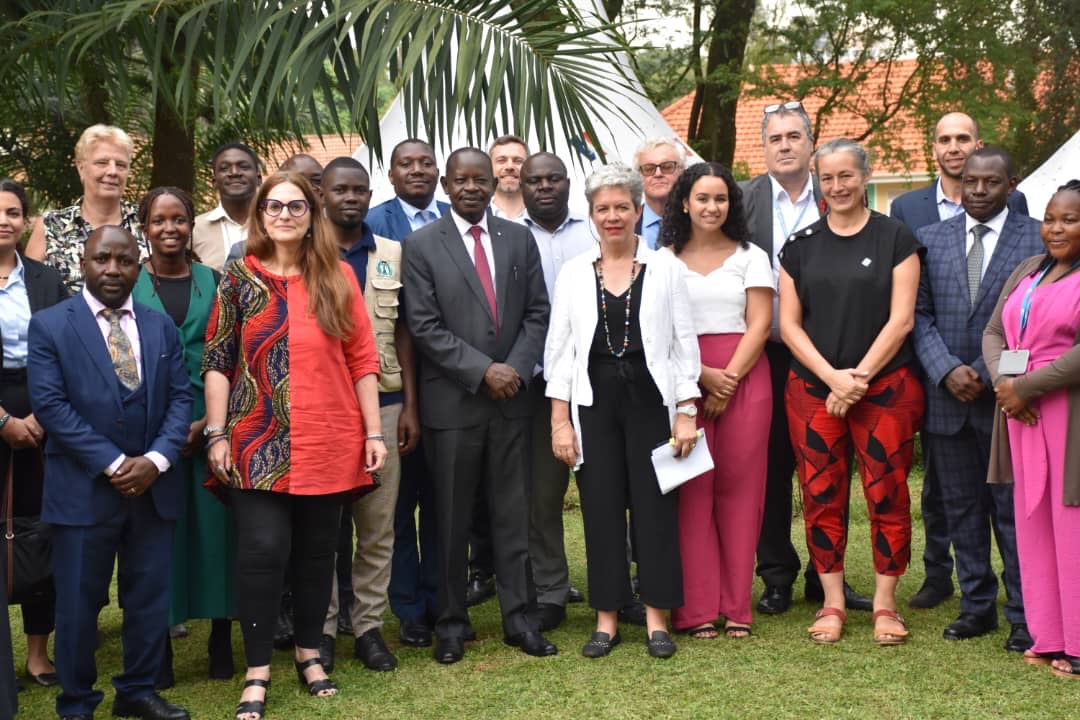Humanitarian actors, government officials and development partners have been urged to step up efforts to ensure inclusive and sustainable support for refugees in the Great Lakes region.
The call was made during a panel discussion organised by the Embassy of France in Uganda and the French NGO Humanity & Inclusion (HI).
Speaking at the event, Virginie Leroy, Ambassador of France to Uganda, called for a move beyond emergency relief towards long-term solutions that leave no one behind.
“Today, we gather to address one of the most urgent and complex challenges: ensuring that humanitarian action reaches everyone in need, leaving no one behind, at a moment when the issue of forced displacement has taken on unprecedented dimension,” she said.
The discussion, themed “Advancing Inclusive Humanitarian Action in the Great Lakes Region: Leaving No One Behind”, took place at the French Residence, ten days after the Paris Conference for Peace and Prosperity in the Great Lakes Region.
It provided a platform for dialogue between humanitarian, development and private sector actors to strengthen local responses to the Congolese refugee crisis in Uganda.
Uganda currently hosts nearly two million refugees, making it the largest host country in Africa. Of these, around 55% are from South Sudan and 35% from the Democratic Republic of Congo (DRC).
Since January 2025, more than 70,000 new refugees have arrived from eastern DRC, 70% of them women and children, pushing the total number of Congolese refugees in Uganda to 641,372 as of 30 September.
The country’s progressive refugee policies, which grant freedom of movement, the right to work, and access to national services, have made Uganda a hub for regional protection efforts.
However, these policies are under increasing pressure due to declining international support. Traditional aid mechanisms, heavily reliant on public donors, are no longer sufficient to meet the scale of humanitarian needs.
“The protracted nature of the conflict continues to hinder conditions for safe and voluntary return, compelling host countries to develop a comprehensive development strategy in line with the humanitarian-development-peace nexus,” Ambassador Leroy added.
The panel also emphasised the importance of integrated approaches, linking humanitarian aid, development and socio-economic inclusion through the private sector. Women, children and people with disabilities, who are at the forefront of this crisis, face major barriers to accessing aid and having their rights recognised.
Representatives from the Office of the Prime Minister (OPM), UNHCR Uganda, and NGOs such as HINGO and Hunger Fighters Uganda participated in the discussion, sharing experiences and best practices for supporting refugee communities while strengthening local systems.
Ambassador Leroy called for continued cooperation and commitment.
The event highlighted the urgent need for sustained international funding, equitable burden-sharing, and enhanced coordination among all stakeholders to uphold Uganda’s humanitarian leadership and ensure no one is left behind in the Great Lakes region.


